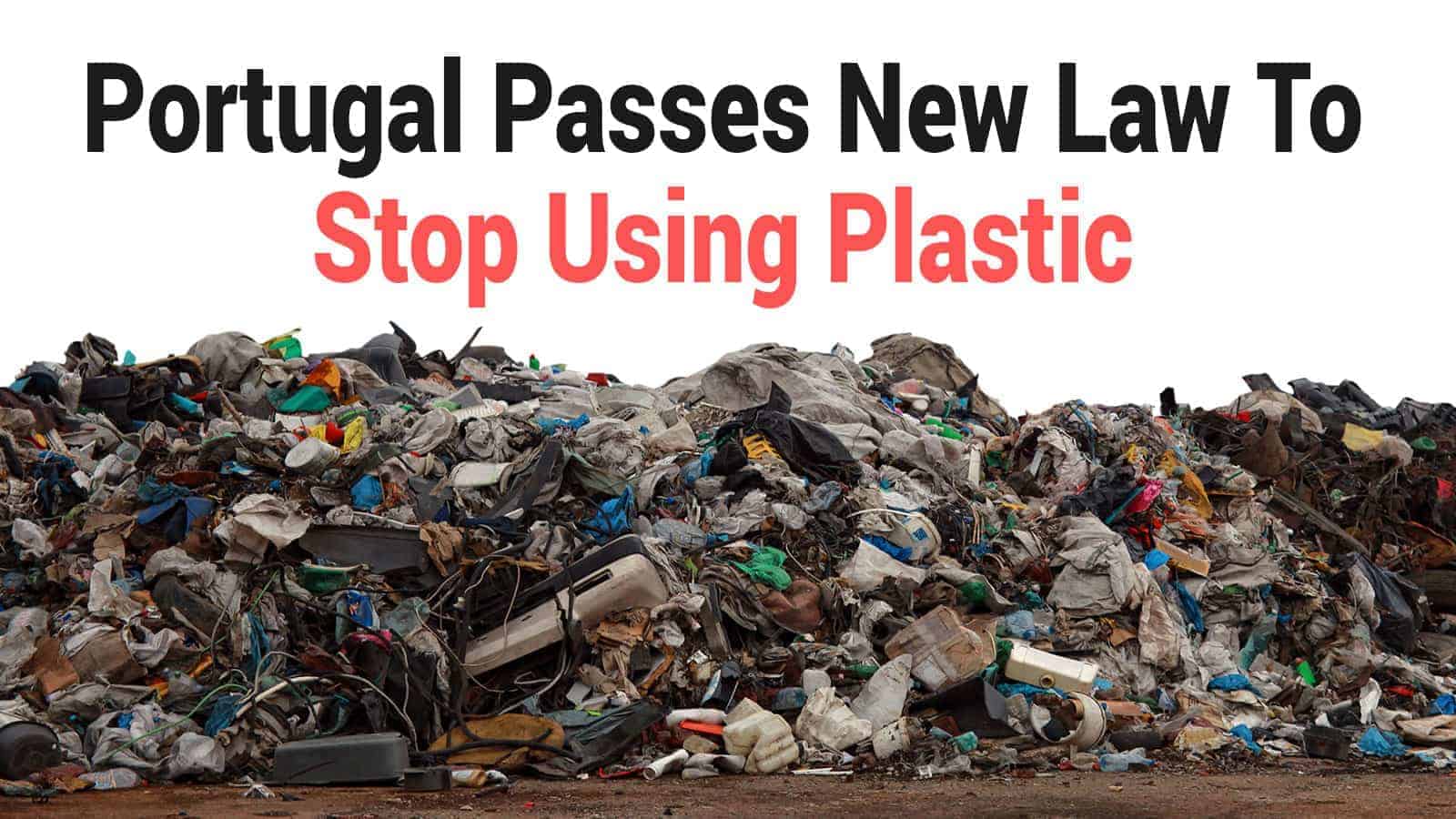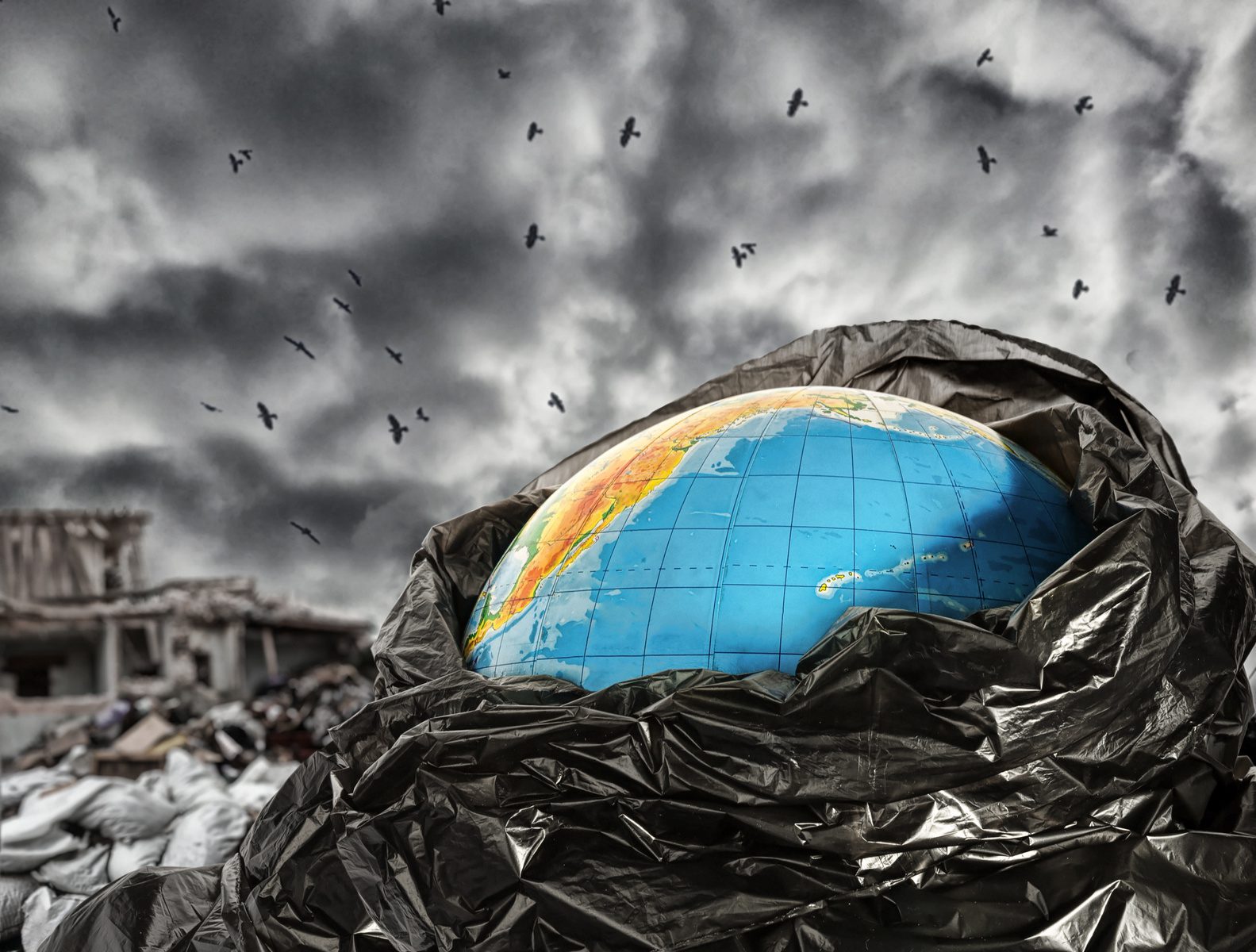Portugal has announced a new bill that has delighted environmental activists around the world: banning multiple varieties of single-use plastic from stores. It’s a bold move and one that is in line with the European Union’s current green proposals.
What exactly does this new directive entail? What will it do? How can it help?
What You Need To Know About The New Law In Portugal That Bans Plastic
Here are the details about Portugal’s new legislation.
1. The New Law
This week, the Portuguese Parliament green-lit a new bill that significantly changes the future of single-use plastic bags in the country. It has proposed to ban all these types of plastic bags, as well as disposable polyfoam and polystyrene packaging typically used for products such as bread, vegetables, and fruit.
Os Verdes, an environmental group, pushed this initiative. It received unanimous approval and aims to prevent all commercial outlets from using plastic bags with lower dimensions than fifteen micrometers in thickness. This applies to bulk bread, fruit, and vegetable sales. It is went into effect in June 2020, giving commercial companies plenty of time to find sustainable alternatives.
All products that use disposable polystyrene or plastic packaging for their products will need to put an end to it. Alternative methods for carrying and transport will then be forced to be implemented by all stores, markets, and shops carrying the corresponding items. Those that do not comply with these new laws will face heavy fines, which will be determined later on once the bill is fully approved.
The bill still needs to pass through processing by the Committee on Environment, but things are looking very positive for its future and approval on all sides, so in all likelihood, it will pass easily.
In the meantime, the relevant authorities plan to create awareness campaigns that teach consumers to use their own reusable bags.
2. Past Laws
Portugal is not new to green laws, especially centering around plastic usage. In February of this year, their government announced that they would begin working to ban the sale of all disposable plastic products, including:
- Straws
- Sticks
- Cutlery
- Plates
This is in line with the European Union’s own goals, and Portugal hopes to put this into action in the latter part of the year 2020.
In Public Administration, many of these products are no longer used at all. Plenty of initiatives are in place in order to reduce environmental damage from plastic. Microplastics are strongly discouraged from use in cosmetic products, for example.
In October 2018, Portugal actually banned the use of plastic dishes and bottles in all government institutes, marking a big positive step forward in green legislation. There have also been steps taken to lessen paper wastage, too, especially when printing.
The country aims to knock down consumable usage by 25% in a single year; as such, they are working hard on providing alternative solutions for a better environment. This resolution applies to all State administration and may apply to other forms of administration, too, depending on circumstances.
3. The First Plastic-Free Flight
In December 2018, Portugal hosted the world’s first-ever plastic-free commercial flight. It flew to Natale in Brazil from Lisbon on the 26th of December.
While many hotels and airlines have taken some steps to reduce single-use plastic consumption, including Air New Zealand, Alaska Airlines, and Delta, it was Hi Fly, a Portuguese airline, that made the first flight with zero single-use plastics.
The flight did not use any plastic:
- Food containers
- Cups
- Straws
- Cutlery
- Stirrers
The company plans to completely eradicate the use of single-use plastic throughout all future flights this year. As such, this historic flight served as a test run of sorts for the airline. This would be followed by three future test runs after this, where they plan to experiment with a variety of sustainable materials, including:
- Low-carbon materials
- Bamboo cutlery
- Plant-based materials
- Compostable containers
- Recycled materials
- Renewable materials
The president of the airline stated that it was impossible to continue to view current levels of plastic waste with positive thinking, and the company knew it was time to focus on environmentally conscious choices. Hi Fly was heavily praised for their efforts.
4. The State of Portugal’s Plastic Waste
The European Union as a whole produces a lot of plastic – 58 million tons yearly, to be exact, to which Portugal contributes significantly. On average, 31kg of plastic is used per person annually in the country – much higher than the average in other countries in the continent. Here’s how this is being combatted so far.
a) Plastic Bags
After the EU launched a directive that ordered all its member states to ban single-use plastics in 2021, Portugal decided to work on introducing the ban – by mid-2020.
Lidl, a supermarket in Portugal, has already begun to completely stop plastic bag usage and sales in its impressive 250 outlets – beginning with the northernmost ones and working southward.
b) Plastic Bottles
There has also been discussion allowing deposits of plastic water bottles to encourage better recycling among citizens of the country. The goal is to create machines that can be placed in commercial areas. These machines can be fed water bottles and will provide discount vouchers to those who do so.
This plan may be put into action by the year 2021, though it is still in its preliminary phases. To start, 50 of these machines will be set up this year, and a study will be conducted as to their effectiveness.
Unfortunately, although 96% of Portuguese residents are aware of the fact that plastic poses problems and threats, most do not seem to be taking any active steps to reduce them, as seen in these statistics:
- 65% say they cannot recognize recycled products.
- 22% do not know that there are sustainable alternatives to single-use plastic bags.
- Half of the aforementioned 96% have not sought out alternatives to single-use plastic.
5. Europe’s Plastic Laws
The European Union will be banning all single-use plastic items in 2021, and all member states must comply. This encompasses a huge range of plastics, including but not limited to:
- Straws
- Stirrers
- Cutlery
- Cotton buds
- Dishes
- Containers
- Balloon sticks
This is mainly in an effort to fight heavy plastic pollution currently affecting oceans, seas, and all forms of bodies of water. Some of these products will face a ban even sooner; straws, cotton buds, and stirrers are set to go out by October in 2020.
The proposals were all backed 571 to 53 in the European Parliament, so it is currently going through negotiations and pushing for legislative approval. Other targets of discussion include:
a) Food Containers
All plastic food containers, which currently do not have alternatives, are set to be cut back in use by a quarter of current consumption by 2025.
b) Fishing Gear
A quarter of European beach waste is linked to fishing. States may be required to attempt to collect and take in half of all gear left on the beach annually by 2025. They must then recycle a minimum of 15% of that collected amount.
c) Drinking Bottles
By 2025, 90% of drink bottles may be separately collected and sent for recycling.
d) Cigarettes
Many cigarette fillers use plastic of some sort. By 2025, there are hopes to cut down on the plastic content in these products.
Plastic pollution in the continent is estimated to, by 2030, cost Europe a whopping €22 billion if this trend continues. That’s why positive steps must be taken in order to curb this – and thus, the need for ambitious new legislation becomes apparent.
6. Ways You Can Reduce Your Plastic Usage
Plastic consumption and waste plagues the whole world, not just Portugal. So if you want to do your part, no matter where you are, you absolutely can! Here’s how.
a) Stop Buying Anything With Plastic Packaging
Plastic packaging is extremely convenient to use. That’s why so many products in stores make use of them, so it can be difficult to dodge them as they swing from all corners.
Try not to buy any product that uses plastic packages or wraps. Opt for bars of soap over plastic-packaged liquid ones. Say goodbye to disposable cutlery and dishes, too – time to invest in some decent diningware!
b) Use Your Own Shopping Bags
America produces 100 billion plastic bags yearly. That puts the ratio of single-use plastic bags to US residents at 1:1 per day! That’s higher than many other countries, and it contributes significantly to the one-trillion global average.
Buy cloth shopping bags or other forms of reusable carriers and bring them along with you for shopping purposes. With plenty of kinds out there, you can’t help but find one that works for you.
c) Stop Using Straws
The next time you buy a drink, don’t take a straw. Learn to drink directly from the cup – we promise it’s not that different!
Paper and metal straws are being produced more and more every year. If you really must use straws, or have a condition that requires them, consider those alternatives!
d) Reduce, Reuse, Recycle
Users toss single-use plastics after one use, which is both wasteful and unsustainable, as this takes up more and more energy. Instead of buying plastics that you can’t recycle, go for ones that can.
Better yet, phase out plastic from your life as much as possible and only use non-plastic recyclable items. Don’t be afraid to find reusable ones!
e) Get A Proper Water Bottle
Why buy plastic water bottles that you drink and toss out when you can get a sturdier, reusable one for long-term use? There’s a reason plastic bottled water has been banned in so many locations globally, after all.
If you have concerns about hygiene or quality in your water, use a water filter (for your sink or one that comes in a bottle) or boil water to use every day.
Conclusion
Portugal is taking steps to curb its plastic usage – and the rest of the world needs to get in on it, too. Pollution and waste is a worldwide issue that causes harm to the environment and costs billions of dollars to deal with.
The current steps entire countries have taken to curb plastic use certainly allow us to look forward with positive thinking – but only time will tell what the future holds. So do your part and try being more mindful of your choices!


















